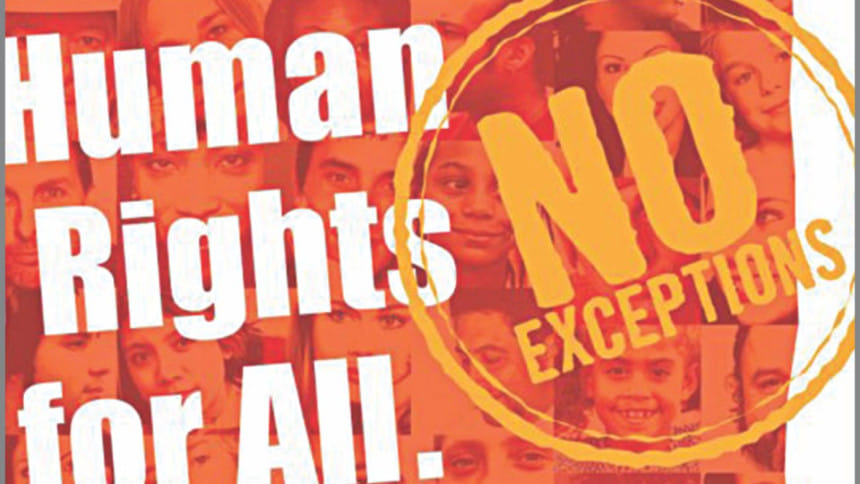Doubtful commitment to human rights

Bangladesh is a party to eight out of nine core human rights treaties. They are the International Covenant on Civil and Political Rights, 1966 (ICCPR); the International Covenant on Economic, Social and Cultural Rights, 1966 (ICESCR); the Convention on the Elimination of All Forms of Discrimination against Women, 1979 (CEDAW); the Convention against Torture and Other Cruel, Inhuman or Degrading Treatment or Punishment, 1984 (CAT); the Convention on the Rights of the Child, 1989 (CRC); the Elimination of All Forms of Racial Discrimination, 1965 (ICERD);the International Convention on the Protection of the Rights of All Migrant Workers and Members of their Families, 1990 (CMW) and Convention on the Rights of Persons with Disabilities, 2006 (CRPD). The government of Bangladesh has registered several reservations and declarations in respect of all but the last three of the aforementioned treaties.
While declarations and reservations are quite common state practices vis-à-vis multilateral treaties, the state practice of Bangladesh concerning declaration and reservation to multilateral human rights treaties deserves some serious consideration. In this regard, a noticeable trend of Bangladesh is that Bangladesh has often put it on the record that it will apply a treaty provision according to the existing domestic law.
For example, the government whilst acceding to CAT made the following declaration: 'The Government of the People's Republic of Bangladesh will apply article 14 paragraph 1 in consonance with the existing laws and legislation in the country.' In addition to CAT, Bangladesh has made analogous declarations about article 11 of the ICCPR, and articles 2, 3, 7 and 8 of the ICESCR. Reservations have been registered in similar terms as regards articles 14 and 21 of the CRC, and, articles 2 and 16(1) (c) of the CEDAW.
Anyone having some knowledge in international law will readily recognise that these reservations are incompatible with the objective and purpose of the aforesaid human rights treaties and therefore, are not permissible; or international law does not allow a state party to invoke domestic law as a justification for failure to perform a treaty obligation. However, apart from jurisprudential perspective, Bangladesh's declarations/reservations to human rights treaties can be judged on their own merits also. What is point of signing a human rights treaty if the treaty itself remains subordinate to the domestic law of a country?
Bangladesh's reservation to CEDAW provisions presents even a worse case. Recently, Bangladesh has stated that it will not withdraw its reservation to articles 2 and 16(1)(c) of the CEDAW (despite the Law Commission's recommendation to the contrary) on the grounds that these provisions are in conflict with Sharia law based on Holy Quran and Sunna. The problem is that a sizeable number of populations live in Bangladesh who do not profess Islam as religion and presumably, they do not necessarily share the same justification on which the reservation is premised. The aforesaid reservation to CEDAW provisions, in absence of any indication to the effect that it is limited to the Muslim population only, applies to the entire people of Bangladesh. Now, the question is why should a treaty reservation, which is purportedly justified on the grounds of Islamic Law, apply to the non-Muslim populations of the country? In effect, the reservation is utterly discriminatory because it deprives non-Muslims of the CEDAW protection for a reason that does not relate to them anyhow.
It's worth mentioning that the practice of Bangladesh concerning declaration and reservation to human rights treaties has not remained unnoticed by other states. A number of states have rightly objected that such declarations/reservations actually raise doubts as to Bangladesh's commitment to the object and purpose of the concerned treaties.
Lastly, Bangladesh's practice concerning declaration and reservation to human rights treaties at best indicates a piecemeal commitment to human rights. It is hoped that the government will wake up soon to regain its sense of perspective.
The writer is an Advocate, Supreme Court of Bangladesh.

 For all latest news, follow The Daily Star's Google News channel.
For all latest news, follow The Daily Star's Google News channel. 



Comments